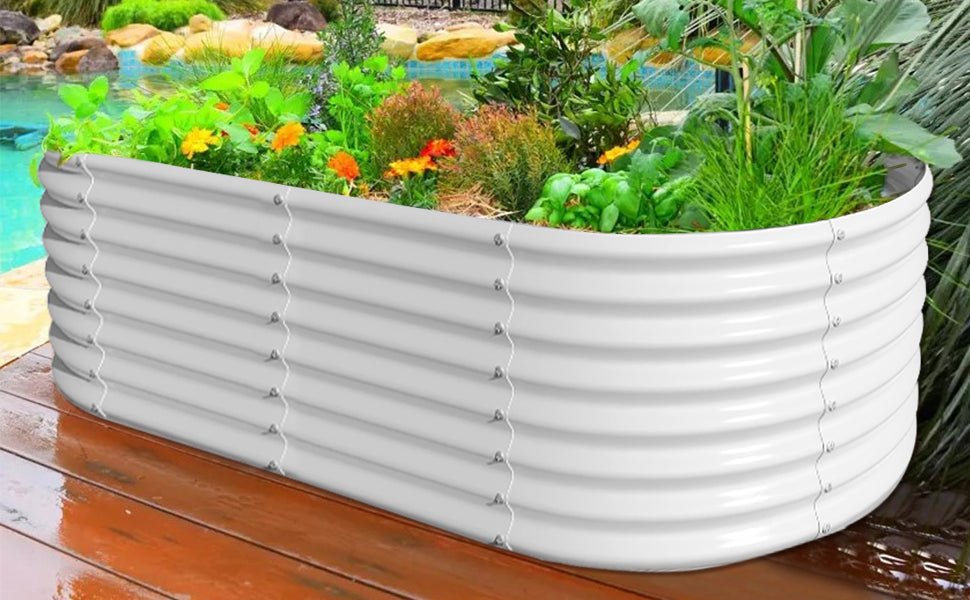
Say NO to Rubber Strips on Metal Raised Garden Beds: Potential Harmful Factors to Consider
The use of rubber strips on the edges of metal raised garden beds is a common practice aimed at providing safety and protection from sharp edges. However, it is important to consider the potential harmful factors associated with the use of rubber strips in this context. While rubber strips can offer immediate safety benefits, they also present a range of potential risks that should be carefully evaluated.
Toxic Chemicals
One of the primary concerns associated with the use of rubber strips on metal raised garden beds is the potential for toxic chemicals to leach into the soil. Some rubber products contain harmful chemicals such as phthalates, bisphenol A (BPA), and volatile organic compounds (VOCs) which can have detrimental effects on both plants and human health. When these chemicals leach into the soil, they can potentially harm the plants growing in the garden bed and pose a risk to individuals who consume the produce.
Degradation
Another important consideration is the degradation of rubber strips over time. If the rubber strips are not UV-resistant, they can degrade when exposed to sunlight, releasing harmful substances into the environment. Additionally, degraded rubber can become brittle and sharp, posing a risk of injury to individuals tending to the garden bed.
Heat Release
In hot climates or areas with high temperatures, some rubber materials can release harmful fumes or chemicals when exposed to heat. This presents a potential concern for both plant health and human safety, especially if the garden bed is located in a very sunny area.
Allergic Reactions
Certain individuals may be susceptible to allergic reactions caused by specific types of rubber or latex used in the strips. Allergic reactions can manifest as skin irritation or other health issues, posing a risk to those who come into contact with the rubber strips.
Microplastic Pollution
As rubber degrades, it can break down into microplastics that have the potential to contaminate the soil and water. This can lead to environmental and health problems, as microplastics may enter the food chain and have detrimental effects on both ecosystems and human health.

Chemical Leaching
Over time, chemicals used in the manufacturing of rubber strips can leach into the soil, potentially affecting plant growth and contaminating vegetables and herbs grown in the garden bed. This poses a significant risk to both the health of the plants and the safety of individuals consuming the produce.
Odor Emissions
Some rubber products can emit strong odors, which may indicate the presence of harmful chemicals. These odors can be unpleasant and serve as a warning sign of potential health risks associated with the use of rubber strips on metal raised garden beds.
Requires Frequent Maintenance

It is important to note that rubber strips on metal raised garden beds require frequent maintenance. They can easily melt, become loose, or start to peel away from the edges of the garden bed, necessitating re-securing or replacement to ensure continued protection from sharp edges. This ongoing maintenance requirement adds an additional layer of consideration when evaluating the use of rubber strips in this context.
Given these potential harmful factors associated with rubber strips used on the edges of metal raised garden beds, it is important for individuals to carefully consider whether using these strips is the best choice for their garden bed construction. In light of these considerations, individuals may choose to refuse the use of rubber strips and explore alternative methods for protecting against sharp edges in their garden beds.
Fortunately, Anleolife offers raised beds that are designed with safety smooth and crimped edges using special techniques, eliminating the need for rubber strips altogether. By being aware of these factors and exploring alternative options such as Anleolife's raised beds, individuals can make informed choices that prioritize both safety and environmental well-being in their gardening practices. Refusing to use rubber strips and opting for safer alternatives is a proactive step towards creating a healthy and sustainable garden environment.


